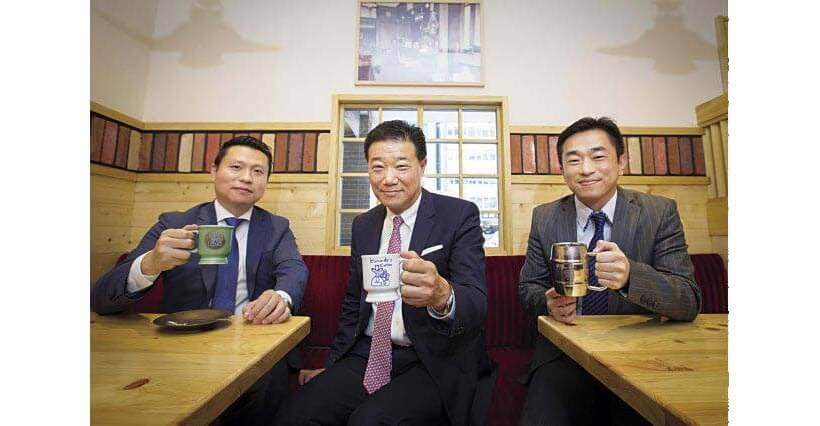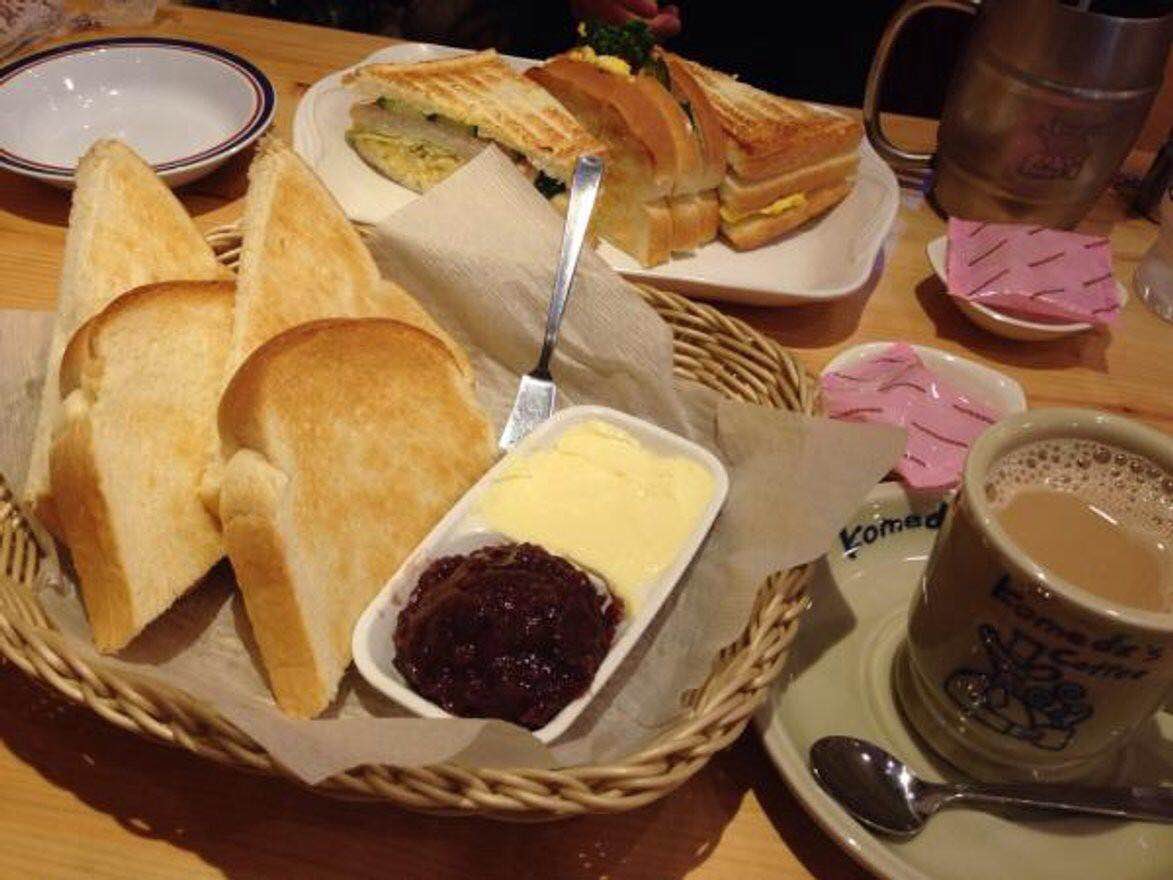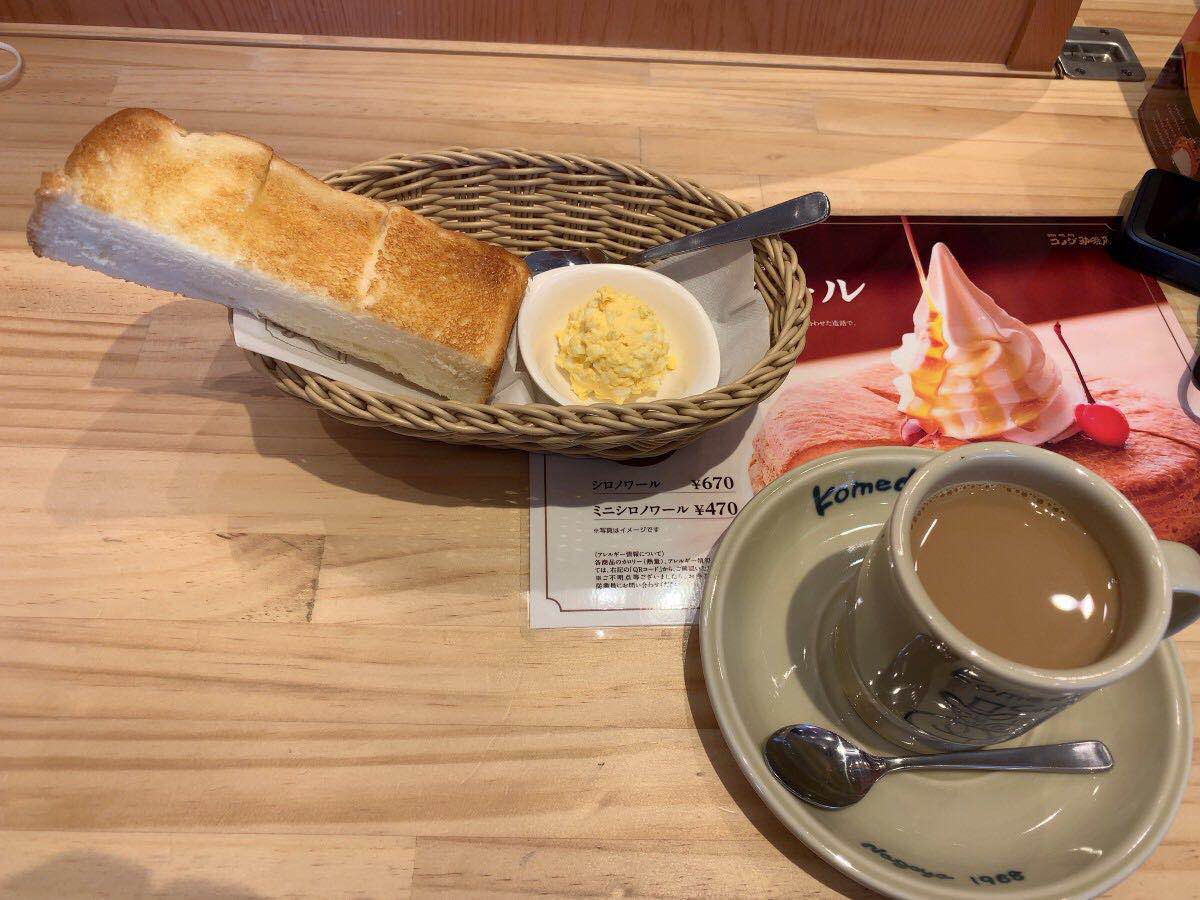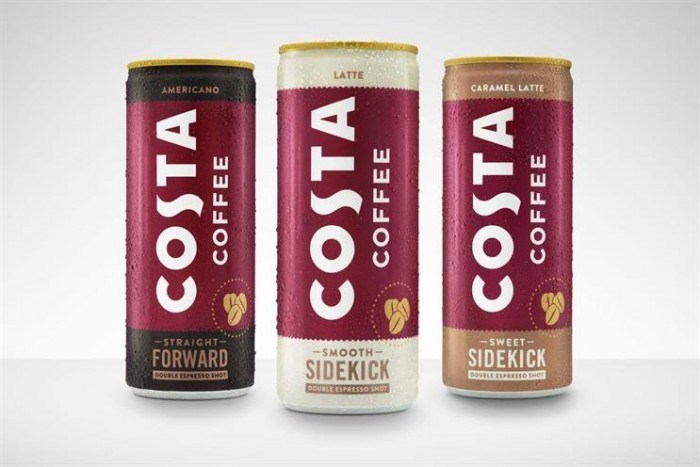Not winning with coffee? Why should this 50-year-old Kemedo coffee shop compete with Starbucks for hegemony?
Professional coffee knowledge exchange more coffee bean information please follow the coffee workshop (Wechat official account cafe_style)
In the past six years, 350 old coffee shops with ringing bells have become a rival to Starbucks.
In China, rookie unicorn Ruixing challenges Starbucks' status. In Japan, the established coffee shop, which has been founded for more than 50 years, is also competing with Starbucks for coffee supremacy, according to Toyo Caijing.
This is Komeda'sCoffee, a traditional tea shop in Nagoya, which was invested by Ambokai Private Equity Fund (MBK Partners) six years ago. In the past six years, 350 stores have been opened in Japan, and now there are 850 stores in Japan, making it the third largest coffee brand after Starbucks and Rodoran.
In recent years, the output value of the Japanese coffee market is slowly growing at an annual growth rate of 2.5%, and the market is beginning to show polarization. On the one hand, there is a battle between low-cost coffee and convenience store coffee, and on the other hand, with the wave of boutique coffee, the battle for high-priced coffee begins. Starbucks is also facing a decline in satisfaction, the Nippon Keizai Shimbun reported. However, Kemedo has expanded greatly at this time, becoming a special case of the market, and its revenue has grown 1.5 times over the past five years.
Ke Meiduo

Founded: 1968
Founder: Taro Kato
President: Usui Xingyin (pictured)
Main products: coffee, toast
Report card: revenue of headquarters and franchise stores in 2017 totaled 65 billion yen, about 4.16 billion yuan
Status: the third largest coffee chain in Japan
Walk into the guest beauty more, the wood decoration in the store, red brick metope, match yellow light, red velvet sofa. This kind of coffee shop looks very old-fashioned, and when Yoshiyoshi Usui, president of Japan's Kemito, said, "We don't win by coffee flavor," it made people even more surprised. Why did it get favored?
Emphasize that the humanized service at the table is no better than coffee. "We sell comfort."
The company even uses the central kitchen to cook meals! Nowadays, most coffee shops brew coffee in the shop, and the employees of most chain brands have to pass the barista test. However, Kemedo set up a central factory to produce coffee and bread and deliver it to the store in order to reduce the flow of work in the store. The clerk took out the coffee extract from the refrigerator, heated it and served it.
Interestingly, it focuses the cost savings from economies of scale on the tradition of tea shops: providing personalized services.
Usui believes that most coffee chains adopt self-service, and the consumer experience is often discounted regardless of the taste of the coffee. But the guest beauty is full service (Full-service) mode, the waiter has to take seats, order, deliver food, etc., each seat has a small bell, you can call the waiter at any time. "what we sell is comfort, an extension of the living room at home! "

Buy coffee, send breakfast, earn goodwill, regular customers come every day, employees can identify
To do this, it starts with details. For example, the decoration of each store is 40% wood building materials to reduce space echo; the height of the sofa back and the space under the knee are ergonomically calculated. However, increasing the in-store consumption experience means that it is difficult to improve the turnover rate. According to statistics, the average stay time of customers in Kemeiduo is one hour, twice that of their peers.
Like Starbucks, Kamedo has created store spaces where consumers can order a drink and stay comfortably. After all, when Kamito started in Nagoya, it was to provide a place for businessmen who came to Nagoya to do business by providing services. With the evolution of the times, businessmen who now enter the United States to talk about business are replaced by literary youth with computers, but the friendliness of the space design of the United States has unexpectedly become another reason why it can be widely accepted throughout Japan.
The way it breaks through is to increase the frequency of consumption and even develop the habit of coming every day to expand the customer base.
Strategically, every morning before 11 a.m., through the "buy coffee, send breakfast" promotion to attract customers, as long as you order a cup of coffee about 600 yen, you will receive toast, with boiled eggs or red bean paste and other ingredients. The method of small profits but quick turnover earns the goodwill of customers. Many people report to the office every day, which will increase the consumption of other periods. Over time, a large number of regular customers will be raised.

Order coffee and send toast the habits of people in Nagoya since childhood
Walking on the streets of Nagoya, the density of Kemedo is about the same as that of convenience stores, with more than 240 stores in Aichi Prefecture alone. If we say that Kemedo is the breakfast restaurant of the people of Nagoya, the people of Nagoya should not object to it. If you walk into the restaurant early in the morning and order an extra cup of coffee, the clerk will send you a thick piece of toast and a boiled egg. This also made people in Nagoya feel that they deserved these services when they went to the coffee shop to order a cup of coffee in the morning, so when they graduated from university and went to work in Tokyo and Osaka, they found that the coffee they ordered in the morning was nothing but coffee, and their mood was actually very broken.
In Kemiduo, almost every waiter can tell the surnames and consumption habits of dozens of guests, including habitual seats, frequent meals, ten years of experienced staff, and can identify hundreds of guests. This makes it have a wide customer base, with an average age of 45, which is comparable to that of Japan's overall population. Customers over 60 are only 5% in the same industry, while 20% are in the same industry, hitting the needs of the elderly society.

The proportion of part-time workers is very high. The service does not have SOP, but becomes a sign.
"while many coffee shops are gradually simplifying their services, we still retain tradition, which is an advantage that is difficult to replace. Usui said that the headquarters did not design the service SOP (standard operating procedures), but gave it flexibility. For example, the waiter can have a heart-to-heart chat with the guests according to the situation.
Clear positioning, strong style, find the market incision. By controlling the cost of raw materials and manpower, Kemeiduo has become a sharp weapon to keep the tradition, especially in manpower. Even if it emphasizes service, because of its simple operation process, it does not need to employ baristas and can use a large number of part-time staff.
It is understood that the ratio of part-time employees to regular employees is 5:1, compared with 3:1 for its peers, which makes its manpower costs account for about 20% of the overall revenue, 10 percentage points less than its peers.

It is not easy to dominate the whole country by franchise stores.
Kemedo not only has 50 stores in Japan's first-level theater Osaka and Tokyo, but also has more than 60 stores in some second-tier cities, including Kanagawa, Chiba, and Fukuoka, even in small prefectures and cities. there are at least one or two shops. Such achievements in the Japanese coffee shop chain industry, if not the only one, at least very few successful cases. To explore the reasons why Kemedo can successfully exhibit stores all over Japan and even overseas, in addition to the strong competitiveness of goods, Kemedo actively develops franchisees and adheres to the model of profit sharing with franchisees in the process of exhibitors. It is also the main reason why franchisees are willing to cooperate with them.
Share the profit with the franchisee under the fixed right payment
In Japan, after three decades of economic malaise and the collapse of the post-war lifetime employment system, many office workers began to look for different jobs to change careers. Finding a restaurant chain to join the owner is the quickest and less risky way. But if you want to open a coffee shop chain like Kemedo, the cost of the exhibition store alone will be more than 100 million yen, which far exceeds the difficulty of buying an apartment or opening a convenience store as the manager. However, Kemeiduo's joining the sharing system has aroused the hearts of these prospective store managers who want to change careers. The first problem you will encounter when participating in a franchise store is the calculation of the royalty. Usually, these royalties will increase with the improvement of performance, but Kemedo adopts a quota system. For example, the seats in the store are 100. the royalty is 150000 yen per month, which will not be linked with the performance. For middle-aged business managers, as long as they manage well. It will not be too difficult for monthly performance to exceed costs and royalties, and the system makes it easy for them to gain access to many communities that only locals can run, expanding the marginal effect.

The old coffee shop made a clear choice to focus its resources on service to make it stand out. However, this set of operational logic also has challenges, especially when exporting overseas, the turnover rate of overseas staff is higher than that of Japan, which has become the biggest obstacle to expansion at present. Usui admitted that in the future, the retention rate will be increased through service competitions to strengthen the value of full service.
Although overseas battles are full of challenges, the old flavor of Camerado has created new variables in the chain coffee war.
END
Important Notice :
前街咖啡 FrontStreet Coffee has moved to new addredd:
FrontStreet Coffee Address: 315,Donghua East Road,GuangZhou
Tel:020 38364473
- Prev

After buying Costa for $5.1 billion, Coca-Cola launched its first Costa canned coffee!
Professional coffee knowledge exchange more coffee bean information Please follow Coffee Workshop (Wechat official account cafe_style) after the formal acquisition of Costa at the beginning of this year, Coca-Cola is expanding the business of Costa Coffee. By the end of June, a series of new ready-to-drink packaged coffee will be launched in the UK and further promoted to Poland and China. This is Coca-Cola's $5.1 billion acquisition of Costa.
- Next

The high-quality "third coffee wave" capital market has entered the coffee industry.
Professional coffee knowledge exchange more coffee bean information Please pay attention to Coffee Workshop (Wechat official account cafe_style) the third wave of boutique coffee broke a static market, but this wave was quickly picked up by capital in the past. To break the static market was a movement called the third Coffee Wave, which started in the United States around 2003. To accept the baptism of this wave
Related
- What documents do you need to go through to open a coffee shop? coffee shop coffee shop certificate processing process
- How to purchase Coffee beans in small Cafe how to choose a suitable supplier for domestic Coffee supply Company
- How to drink Starbucks Fragrance White Coffee? how to make Australian White Coffee? what Italian coffee beans are recommended?
- The Story of Flora Coffee: the name of Flora Coffee Bean and the implication of the Flowers on Florna Coffee
- How much does a cup of coffee cost? How much is the profit of a cup of coffee? What is the profit of the coffee shop in a year?
- Yunnan small Coffee, known as "fragrant Coffee", introduces the characteristics of Alpine Arabica Coffee producing areas in Yunnan, China
- 2023 latest Starbucks full menu price list how much is a cup of Starbucks coffee what is better to drink the most popular hot and cold drinks recommended
- Starbucks different kinds of Coffee Price list Starbucks menu 2023 Top Ten Best drinks in Starbucks
- Starbucks Spring praise Comprehensive matching Coffee Bean theme Story Packaging implication and taste description
- The cost of a cup of coffee latte American coffee cost price and selling price

